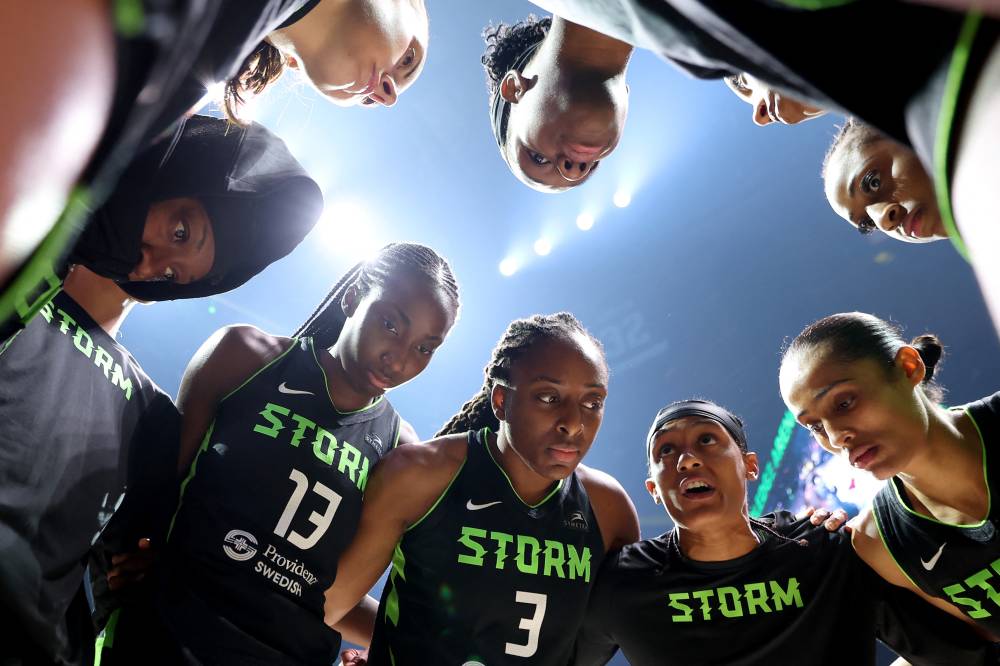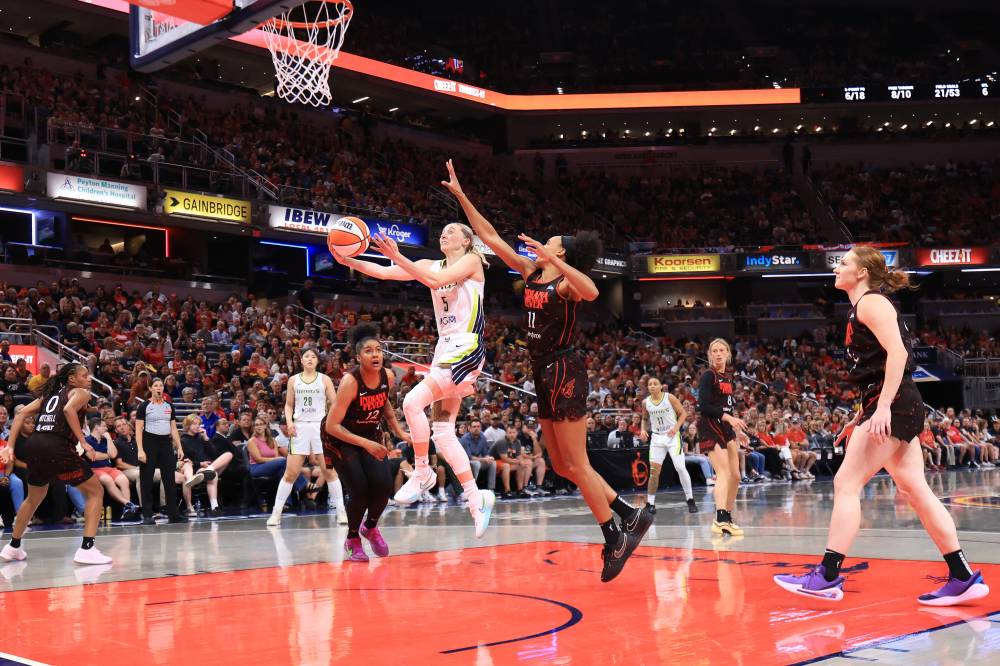The WNBA still has a man problem

The Women’s National Basketball Association (WNBA) once again made sports headlines over the past couple of weeks. And once again, the league and the players have been made the butt of a terrible joke. In three—yes, three!—games, an immature fan threw a sex toy onto the court while the action was live, forcing a break in play.
Meanwhile, nearly a month ago at the league’s annual All-Star Game, several WNBA players, including rookie Indiana Fever superstar Caitlin Clark, tried to make a statement about their relatively dismal pay. Rocking statement shirts that said “Pay us what you owe us,” the stars simply demanded a higher share of the league’s revenue (they currently receive a meager 9.3 percent, compared to other men’s leagues that get around 40 to 50 percent), especially after the WNBA has set new records in attendance, viewers, and merchandise sold in 2024.
Male sports fans quickly mocked and dismissed the demands—still under the assumption that women’s basketball doesn’t make enough at all to justify paying players more. This is despite male pro-ballers such as the legendary Shaquille O’Neal siding with their women counterparts, and the players simply wanting a slightly bigger share of the profits.
Misogyny at its worst
There’s a reason why the WNBA gets much more pushback and disrespect than the NBA and other men’s sports leagues—although you’ll also find people arguing against male pros’ exorbitant salaries—and it can be distilled into one single word: misogyny. Or plain sexism, if you didn’t know about the “M word.”
You’re never going to encounter a random weird fan disrespecting the men by throwing a sex toy and interrupting an NBA game—simply because guys either respect or fear the male players more. We already knew this deep in our bones. But for them to be so brazen about it when it comes to women’s sports is also a function of some male sports fans seemingly not being able to handle women’s success in a normal, rational way.
In fact, I already expect to stir up some pretty strong reactions from the men with this article alone.
“Online content drives so much of the discourse. While women’s sports have grown their audiences through social media, there’s also a whole economy of disrespect—male podcasters and YouTubers who mock WNBA players and misrepresent the pay gap to male audiences,” says award-winning journalist, women’s sports advocate, and Go Hard Girls founder Ceej Tantengco-Malolos.
“What’s striking is how many men form strong opinions about the WNBA without deep knowledge of the league,” she adds. “I know guys who enjoy Caitlin Clark highlights or call themselves ‘girl dads’ like Kobe, but still joke that the WNBA stands for ‘where no body attends’—until I show them footage of a sold-out game I watched in Brooklyn, with lines snaking outside Barclays Center and sponsorships lighting up halftime segments and the arena.”
“Their surprise reflects a wider issue: women’s sports are growing, but outdated gender biases still shape perception more than reality.”

Why the hate?
Not that we needed one to prove something we already know, but a 2022 study by Durham University’s Department of Sport and Exercise Sciences in the UK showed that openly misogynistic attitudes “may be common” among male fans. Although the male fans surveyed were football fans, I’ve also spent enough years in message boards, Twitter, and comments sections to know that it’s not a matter of may—it is common. And the more depressing thing is most male fans have not yet evolved in 2025.
“When sex toys are thrown onto the court, or when players are mocked for asking for fair pay, these aren’t isolated incidents. They’re symptoms of a gender gap—not just in sports, but in a society that casually disrespects women,” observes Tantengco-Malolos.
On the other hand, the good thing is most male pro athletes tend to back their female counterparts. This reminds me of an occasionally-cited 2015 psychology study that found sexist hostility usually comes from “lower-status” men who stand to lose the most when a woman “disrupts” a male hierarchy—basically, less-skilled dudes are often angrier at skilled women.
Put even simpler, it’s usually the guys who aren’t pros who sound like they’re jealous of women who play better than them and make pro money.
Acknowledge the women
The other good thing is that despite these misogynistic and sexist attitudes still persisting, the reality (that some men really can’t handle) is that after all this, the WNBA is still on the rise. That fans have been eager to pour in time, energy, and most importantly, money into the games and the league.
This is why the players have the confidence to ask for more in the first place. After all, are they not the “content” the league broadcasts? The ones that generate value for the brand to begin with?
“Studies show that the WNBA—and women’s sports as a whole—are accelerating in audience size and revenue,” says Tantengco-Malolos. “There’s also data that shows that women athletes are deeply trusted by their communities, and are 2.8 times more likely to convert sales versus any other type of influencer. Women aren’t asking for charity; they’re asking for a fair share of the financial gains they help generate.”
And for an advocate like her—as well as all female athletes—the ask for men is actually quite simple, if not the bare minimum: if you’re a male sports fan, help redirect the conversation to acknowledge the women.
“Women have led this advocacy for so long, but it’s high time men step up as allies, too,” she says. “Have those hard conversations with your barkada when they share YouTube videos mocking women’s sports. Take your sons to watch women’s games. And maybe take a moment to question your own biases—what do you really think about women’s sports, and why?”
She says, “A more equal sports industry doesn’t just benefit women—it challenges the norms that limit all of us. It expands what leadership, excellence, and fandom can look like. When we invest in women’s sports, we’re investing in a culture that values fairness, representation, and possibility for all.”
















